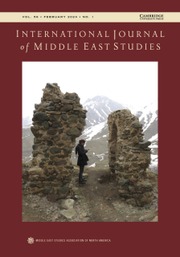Agents of the Hidden Imam
In 874 CE, the eleventh Imam died, and the Imami community splintered. The institutions of the Imamate were maintained by the dead Imam's agents, who asserted they were in contact with a hidden twelfth Imam. This was the beginning of 'Twelver' Shiʿism. Edmund Hayes provides an innovative approach to exploring early Shiʿism, moving beyond doctrinal history to provide an analysis of the socio-political processes leading to the canonisation of the Occultation of the twelfth Imam. Hayes shows how these agents cemented their authority by reproducing the physical signs of the Imamate, including protocols of succession, letters and the alm taxes. Four of these agents were ultimately canonised as “envoys” but traces of earlier conceptions of authority remain embedded in the earliest reports. Hayes dissects the complex and contradictory Occultation narratives to show how, amidst the claims of numerous actors, the institutional positioning of the envoys allowed them to assert a quasi-Imamic authority in the absence of an Imam.
- Reconstructs the roles and careers of key actors in the drama of early Occultation politics
- Provides close readings of often contradictory primary sources about the Occultation to show how the narratives of the Occultation was not simply written, but rather contested and canonised
- Proposes a new and more precise chronology for the stages of development in leadership of the early Twelver community
Reviews & endorsements
‘This book studies a crucial yet poorly understood period in the history of Imami Shiʿsim. Hayes has produced a compelling historical narrative out of a difficult and fragmentary record. Significantly, he reminds us that doctrine is never sui generis, and that to understand doctrinal history, we must keep in mind the social and the political.’ Mushegh Asatryan, University of Calgary
‘An innovative study – the first of its kind – in which the relationship between the Imam and the community is examined in terms of institutional structures and networks, and not purely as a matter of doctrine. For the first time, we have a history of early Imami Shi’ism which incorporates developments in religious doctrine with political structures, religious institutions and the practices of early Imami believers. The work provides us with a clear and detailed account of the Imam’s practical as well as doctrinal authority in early Shi’ism. The finding have implications beyond Shi’i studies with implications for our understanding of the development of institutional religion in the Umayyad and Abbasid periods.’ Robert Gleave, University of Exeter
‘A path-breaking study of the pivotal moment in the formation of Twelver Shi`ism - the transition of leadership from the Imams to the envoys. By inserting social, political, and institutional dimensions into his analysis and narrative, Hayes offers a new approach to the writing of Shi`i history.’ Nimrod Hurvitz, Ben Gurion University of the Negev
‘An exciting, path-breaking book that examines the emergence of Twelver Shīʿism through the lens of the forgotten actors at the heart of the story: the agents of the imams. Part social history, part history of religion, this is essential reading for anyone interested in the many different kinds of Islam that developed in the early period.’ Christian C. Sahner, University of Oxford
‘A vividly coherent narrative of a sensitive historical period.’ Hussein Ali Abdulsater, JAOS
Product details
February 2022Hardback
9781108834391
292 pages
235 × 158 × 20 mm
0.53kg
Available
Table of Contents
- Introduction
- 1. The rise of the agents in the late Imamate (830-874 CE)
- 2. The crisis before the crisis. The feud between Imamic contenders and the power of the agents
- 3. Crisis! The mother, the brother, the concubine and the politics of inheritance
- 4. The agents of the Nāḥiya in the era of perplexity
- 5. The creation of an envoy: The rise of Abū Jaʿfar al-ʿAmrī
- 6. Rise and fall: Ibn Rawḥ, Shalmaghānī, and rise and collapse of the envoyship
- Conclusion.






